I’m often asked about what foods a pregnant woman should eat to provide her baby with the best nourishment. Everyone assumes I’m gonna respond with “More vegetables,” so imagine the look on their face when I say “Eggs with the yolks!”
Believe me… I’ve got nothing against vegetables and they DO play an important role in prenatal nutrition, but I always mention eggs because a) many people still think they’re not healthy and b) they provide specific baby-building nutrients that are hard to find in other foods.
Years ago, I worked for a perinatology practice in a low income area of Los Angeles where many of the women I saw relied on supplemental nutrition programs, like WIC. Eggs were one of the few foods that were easily accessible, nutrient-dense, and tasted good.
I was always thrilled when I heard they could easily get eggs… That is, until I realized most of them were throwing out the yolks. Thanks, outdated dietary guidelines and government-sponsored nutrition classes. Ugh!
Needless to say, I spent a lot of time encouraging women to eat the yolks. I’m pretty sure I was known as the “egg lady” because of how frequently I brought it up.
I believe that every pregnant woman should eat eggs (with the exception of those with egg allergies, of course).
For example, did you know that certain nutrients in eggs may:
- Lower your risk of preeclampsia?
- Help reduce cravings and excessive weight gain?
- Prevent neural tube defects (it’s not just folate)?
- Improve long-term memory function of your child?
Simply put, eggs are an incredible superfood. Not only are they a convenient source of protein, but they are an excellent source of many vitamins and minerals commonly lacking in a prenatal diet.
Research-Backed Benefits of Eating Eggs in Pregnancy
1. Choline
Choline is abundant in eggs, but chances are you haven’t heard much about this nutrient. Choline is a relative of the B-vitamins that was not widely discussed (outside of the research sphere) until about 20 years ago. The first recommended daily intakes for choline were set fairly recently in 1998, while most other nutrients had recommended daily intakes set back in the 1940’s to ‘60’s. In the scheme of nutrition science, choline is a new kid to the block.
It turns out choline has some of the same beneficial effects on a developing baby as folate, including fostering normal brain development and preventing neural tube defects. (American Journal of Epidemiology, 2004) Virtually every woman has heard of folate (or the synthetic version, folic acid) and understands how crucial this nutrient is to a healthy pregnancy, but choline rarely gets mentioned.
I like to say “Choline is folate’s long lost cousin.”
Had nutrition research discovered choline at the time when the rest of the B-vitamins were being researched, it would be folate’s sibling, not cousin… but I digress.
So what, exactly, does choline do?
“Metabolites of choline are required for synthesis of cell membranes, neurotransmission, and methyl metabolism—processes essential to fetal brain development and tissue expansion. A large body of evidence suggests that periconceptional choline deficiency increases the risk of adverse birth outcomes, including neural tube defects and other congenital abnormalities. In addition, maternal choline status appears to influence cognitive development in infants.” (Journal of Nutrition, 2015)
Data from rat studies suggest that adequate choline intake in pregnancy may impact memory function for the rest of your child’s life. (Journal of the American College of Nutrition, 2004)
According to the study: “When rat pups receive choline supplements (in utero or during the second week of life), their brain function is changed, resulting in lifelong memory enhancement. This change in memory function appears to be due to changes in the development of the memory center (hippocampus) in the brain. These changes are so important that investigators can pick out the groups of animals whose mothers had extra choline even when these animals are elderly. Thus, memory function in the aged is, in part, determined by what mother ate.” (Journal of the American College of Nutrition, 2004)
Lastly, it appears that choline plays a role in placental function and may enhance nutrient supply to your baby. (Placenta, 2016)
Studies on human placental cells have found that “choline inadequacy may contribute to placental dysfunction and the development of disorders related to placental insufficiency.” (Journal of Cellular Physiology, 2014)
Furthermore, supplementing pregnant women with high amounts of choline in the second and third trimester (930mg, which is roughly double the RDA) has been shown to improve vascular function of the placenta and “mitigate some of the pathological antecedents of preeclampsia.”(FASEB, 2013)
Unfortunately, most women only consume a fraction of the recommended daily allowance of choline, partly because food sources are limited or perhaps because they’ve been scared away from eating egg yolks. It’s estimated that fully 90% of women in the US do not meet the recommended daily allowance of 450mg per day. (FASEB, 2007)
The top two sources of choline in the diet are egg yolks and liver. Both are incredibly nutrient-dense, but not many women consume liver (at least, not regularly). That makes eggs the number one source of the nutrient for most people.
Just two eggs (with the yolks) per day meets about half of a pregnant woman’s needs for choline.
Most prenatals don’t contain much (or any) choline, meaning you have to be proactive to get enough from your diet. (J Fam Med Dis Prev, 2016) If you’re not consuming eggs or liver regularly, odds are, you’re among the 90% of women lacking in choline.
If you want to nerd out EVEN MORE about choline’s role in a healthy pregnancy, see this in-depth post.
2. DHA
Choline’s beneficial effects on brain development may also be related to this little known fact: Choline works synergistically with the omega-3 fat, DHA, enhancing how much DHA is incorporated into cells. (American Journal of Clinical Nutrition, 2013)
If you’ve done some reading on prenatal nutrition, you’ll know that DHA is proven to enhance brain development. In rat studies, combined supplementation of choline alongside DHA improves brain development more than supplementing with either one in isolation. (Neurology Research International, 2017) It’s no accident that eggs are rich in both nutrients.
Eggs from chickens raised on pasture (rather than crammed in barns or cages) have higher DHA levels – 2.5x more than eggs from commercially-raised hens. (Renewable Agriculture and Food Systems, 2010) That’s because the chickens spend time outdoors pecking around and eating grass and bugs.
Eggs are one of the few non-seafood sources of DHA, a key omega-3 fat that is linked to higher IQ in infants. (American Journal of Preventive Medicine, 2005) You certainly can’t meet all of your DHA needs from eggs alone, but they do contribute to your overall intake.
3. B-vitamins
Egg also contain an array of B-vitamins, including folate, niacin, riboflavin, thiamin, biotin, vitamin B-6, pantothenic acid, and vitamin B-12. Like choline and DHA, these vitamins are most concentrated in the yolks.
Yes, there is a solid reason people consider eggs a food-based multivitamin.
Adequate B-vitamins play a role in everything from brain development, placental function, blood sugar metabolism, detoxification, and management of common pregnancy complaints, like nausea and fatigue.
4. Vitamins A, D, E, K
These fantastic four are the fat-soluble vitamins. Eggs provide a little bit of ‘em all, but I want to highlight vitamin A.
Vitamin A is an essential nutrient, widely recognized for its role in normal growth and development during pregnancy, including the developing lungs, kidneys, heart, eyes, and other organs. Even the National Institutes of Health states “Pregnant women need extra vitamin A for fetal growth and tissue maintenance and for supporting their own metabolism.”
Sadly, fully one-third of pregnant women fail to consume enough, even in areas where they have plenty of access to vitamin A-rich foods. (European Journal of Nutrition, 2007)
Many assume you can get vitamin A from plant foods, like carrots and sweet potatoes, but that’s not exactly true. Plant foods contain beta carotene, which must be converted into vitamin A in your body. BUT, that’s a super inefficient process.
This study sums it up well:
“A summary of the major human studies that determined conversion factors for dietary β-carotene to retinol … show that the conversion efficiency of dietary β-carotene to retinol is in the range of 3.6–28:1 by weight. There is a wide variation in conversion factors reported not only between different studies but also between individuals in a particular study.“ (American Journal of Clinical Nutrition, 2010)
Short answer: You have to consume some *actual* vitamin A, not rely on beta carotene to meet your needs.
And paradoxically, the more beta-carotene you eat, the less you convert to vitamin A. (Journal of Nutrition, 2010) Again, if you didn’t believe me the first time, you need some dietary sources of preformed vitamin A to ensure enough for yourself and your growing baby. Eggs are one of many animal foods that provides vitamin A in the ready-to-use form.
5. Protein & Healthy Fats
When you analyze macronutrients, eggs contain only fat and protein (no carbohydrates), so they don’t raise your blood sugar. This makes eggs a perfect breakfast option if you often have food cravings, feel very hungry in the morning, struggle with low energy, or find yourself gaining weight faster than you expected. These are all frequent complaints during pregnancy.
Researchers investigating people’s responses to different types of breakfast found that, compared to a bagel, those who ate eggs naturally ate less throughout the day, had fewer cravings, and experienced fewer spikes in blood sugar and insulin. (Nutrition Research, 2010) Eggs are full of nutrients, they keep you satisfied, and they stabilize your energy levels. They are a win-win-win.
Plus, eggs are a complete protein, providing all essential amino acids in a highly bioavailable form. One way to measure protein quality is by a ranking system called biological value and eggs top the list with a perfect score.
Protein needs increase during pregnancy and greatly exceed conventional prenatal recommendations per the latest research. It turns out that third trimester protein needs are 73% higher than the current estimated average requirement. (The Journal of Nutrition, 2015)
In real world terms, this means that most women in the latter half of pregnancy need a minimum of 100g of protein per day. A large egg provides ~7g of protein a piece, so a few eggs per day can make a significant contribution to your daily protein intake.
6. Other nutrients
Eggs are rich in two antioxidants, lutein and zeaxanthin, which are crucial to eye and vision development. These antioxidants accumulate in the retina of the eye and prenatal consumption of eggs is one way to ensure you have adequate amounts. Lutein appears to be particularly important in vision development as it is detected in fetal eye tissue in utero. (Experimental Eye Research, 2017)
Trace minerals are another benefit of eggs, especially because they may otherwise be lacking in your diet. Two trace minerals that are found in significant quantities in eggs are iodine and selenium.
Iodine plays an important role in your baby’s brain development and is crucial to maintaining normal thyroid function in pregnancy. (Paediatric and Perinatal Epidemiology, 2012)
Selenium is also important to your thyroid, but it’s also key for maintaining healthy liver function, so your body can safely and effectively deal with toxins that we’re exposed to in the environment.
Given all these beneficial nutrients, you’d think conventional prenatal nutrition guidelines would wholeheartedly endorse eggs.
While they aren’t anti-eggs, per se, they certainly don’t encourage women eat a lot of them.
Need proof? Check out this super sad suggestion for breakfast from the Academy of Nutrition and Dietetics (formerly known as the American Dietetic Association):
Breakfast:
1 cup oatmeal
8 oz low fat milk
½ cup strawberries
Why is oatmeal taking center stage instead of eggs?
I have one guess: cholesterol.
(And the ludicrous assumption that pregnant women require a high-carbohydrate diet…But I’ve addressed that elsewhere.)
In fact, the only place eggs show up in their sample meal plan is in the form of… (wait for it)…light mayonnaise.
>>>Let me pause for a moment and bang my head on my desk several times.<<<
Ironically, this document is titled: “Nutrition and Lifestyle for a Healthy Pregnancy Outcome.”
A note about cholesterol
Yes, eggs are rich in cholesterol.
If you’re nervous to eat eggs because you are worried about cholesterol, know that research has disproven the theory that dietary cholesterol increases the risk of heart disease. (Current Atherosclerosis Reports, 2010) And often, the opposite is true! It turns out that excessive dietary carbohydrates are more closely linked to dyslipidemia than dietary cholesterol (or saturated fat). (Lipids, 2009)
Besides, our brains need cholesterol. In fact, 25% of the cholesterol in our bodies is found in the brain where it plays a crucial role in normal neural function. If you want to provide the raw materials to help your baby develop a healthy brain, you should absolutely be consuming cholesterol!
A note about Salmonella
Some women have been told to avoid eggs (especially if the yolks remain runny after cooking) because they can cause food poisoning. Food safety concerns over eggs have been overstated again and again, especially to pregnant women. According to a 2012 analysis from the Centers for Disease Control, food poisoning due to eggs accounts for only 2% of all reports nationwide. (CDC, 2012)
In fact, you’re 8x more likely to get food poisoning from fresh produce than from eggs. (Emerging Infectious Diseases, 2013)
Yet, you never hear health officials warning pregnant moms to avoid fresh fruits and vegetables.
Sourcing your eggs from pasture-raised chickens is one of the best ways to reduce the risk of food poisoning, since organic farms have a seven-fold lower rate of Salmonella infection compared to commercial producers. (Foodborne Pathogens and Disease, 2010)
Often you can find eggs from pasture-raised chickens by connecting with local farmers or at health food stores. Even eggs from conventional farms are very unlikely to contain Salmonella, with estimates ranging from 1 in 12,000 to 1 in 30,000. (International Journal of Food Microbiology, 2000)
Choose Eggs from Pasture-Raised Chickens
When it comes to eggs, quality counts. Eggs from chickens raised on pasture (meaning outdoors, in grass, pecking at insects and enjoying the sunlight) are not only less likely to harbor Salmonella, they’re also more nutrient-dense than conventionally-produced eggs.
Here are a few ways eggs from pastured chickens are superior: (Renewable Agriculture and Food Systems, 2010)
-
- Vitamin A content is 30% higher, which is clearly visible from the rich, orange color of the yolks. The more fresh greens, grasses, and bugs a chicken eats, the higher the vitamin A levels. Vitamin A is crucial for eye and lung development, among many other functions.
- Vitamin E content is fully double that from commercially-raised hens.
- Omega-3 content is 2.5 times higher than eggs from commercially-raised hens.
- Omega-6 fats are found in lower levels, which is favorable, since these fats tend to cause inflammation (Eggs from pastured chickens have less than half the ratio of omega-6 to omega-3 fatty acids).
- Vitamin D content is 3-6 times higher due to regular sun exposure.
I should mention that most of the nutrients discussed above (like choline and DHA) are found in the egg yolk, so do eat the whole egg, otherwise you miss out on the benefits. There’s a reason eggs comes with yolks, after all.
Regardless of how the chickens are raised, eggs are still incredibly nutrient-dense, so even if you can’t access pasture-raised eggs, don’t miss out on the benefits of eating eggs in pregnancy, both for you and your unborn child.
Now I’d love to hear from you.
Do you think it’s a good idea to eat eggs during pregnancy? Why or why not? Does the information in this post sway you in either direction? Tell me in the comments below.
Until next week,
Lily
PS – Like this type of in-depth information on prenatal nutrition? This post includes excerpts from my books, Real Food for Gestational Diabetes and Real Food for Pregnancy. For more on the importance of a nutrient-dense, real food diet during pregnancy, you know where to look for evidence-based guidance. Each of my books has a whole chapter devoted to the science behind ancestral foods that help your baby grow healthy and strong, including eggs and liver.
You can read the first chapter of Real Food for Pregnancy for free (go HERE or see the box below this post).
If you have gestational diabetes, I’m proud to say Real Food for GD continues to be the best-selling gestational diabetes book on the market (tens of thousands of women have benefited from it). If you want the best chances of managing your gestational diabetes with food, this is the book for you. It’s published in English, Spanish, and Czech.

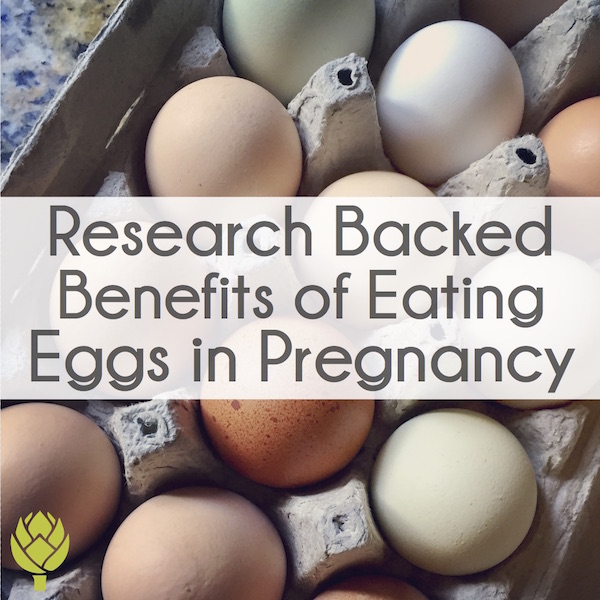

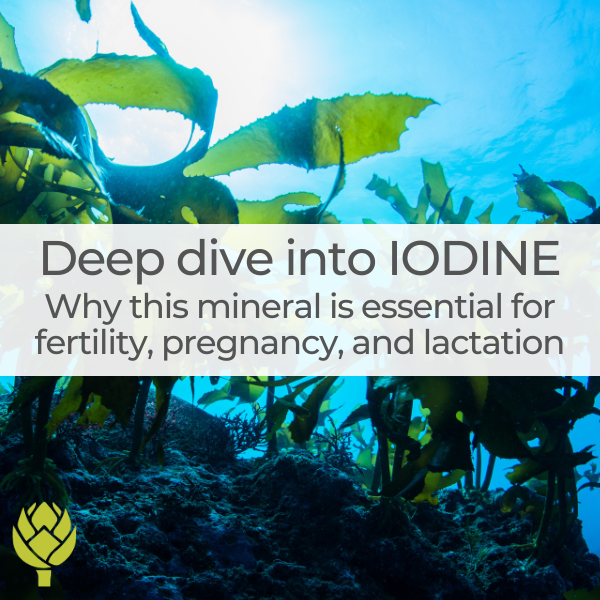
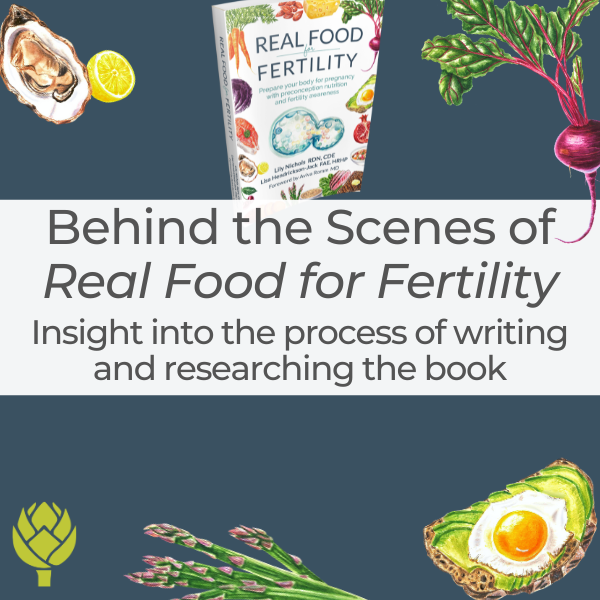
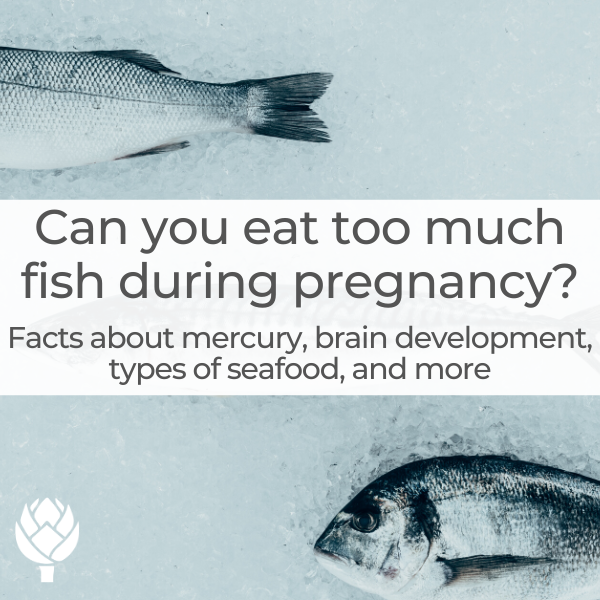
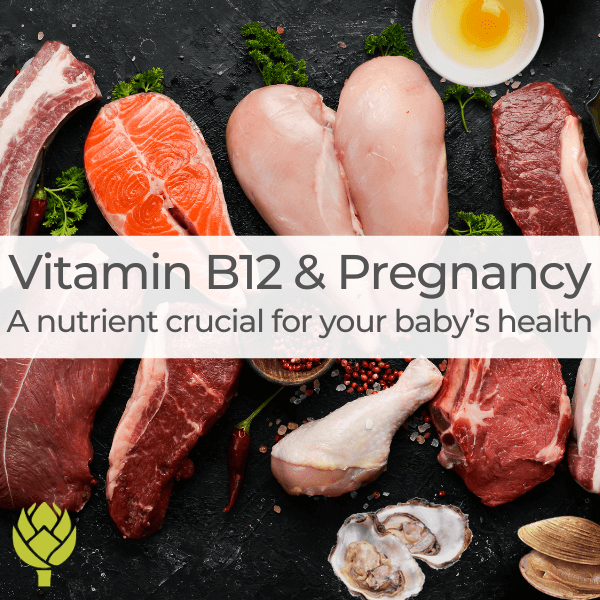



Since egg yolks exacerbate my eczema posts like these always break my heart a little bit… being a real food dietitian that doesn’t eat the yolks is so depressing sometimes! Planning to try for pregnancy #1 in the next couple years and I’ve always been curious what your opinion would be, keep avoiding the yolks since they are a known inflammatory trigger and cause uncomfortable eczema? Or, eat the yolks (will likely then manage the eczema with steroid cream if it gets bad enough) in order to obtain beneficial nutrients and expose the baby to the antigens? Thanks so much!
Aw I had no intention of breaking any hearts. ;( Like I said, if you have an allergy/sensitivity/intolerance to eggs, don’t eat ’em. While eggs are concentrated nutrition, you can get the nutrients in them in other places. Choline would be my main concern if you don’t regularly eat liver or organ meats. It’s found in many other foods, just not in concentrated amounts. Some prenatal vitamins contain choline.
A very good friend of mine is extremely allergic to chicken eggs but found out that she is able to eat duck eggs as duck eggs have a different protein structure. They are quite tasty and many chefs actually prefer to bake with them. Perhaps something to be considered.
For sure, eggs from all birds would be a source of choline. It really depends person to person whether their egg allergy is JUST to chicken eggs or to eggs of other birds as well, but definitely something to explore!
Thanks Lily for all you information on nutrition, I have been passing on your website to mothers with Gestational diabetes that come to my class… I really enjoyed reading the article on eggs… Peter
Thanks so much, Peter!
Hi Lily, and thanks for all the information you put out there.
I’m pregnant and I’m very confused about how much vitamin A should I aim for. Coul you give me some rough guidelines about what amount of each food should I eat to meet the requirements? Thanks so much!
I’m desperately trying to get eggs down but morning sickness makes it so hard! Thank you for all you do Lily, your book is just amazing!
I am in my first trimester and I definitely want to be getting my recommended dosage of Choline, so I have been having 2 eggs, with 2 additional egg yolks, scrambled for breakfast. But I read the article about the controlled study that supplemented women with 950mg and 450mg and the results were so much better for the 950mg women, and now I’m thinking of supplementing with Alpha GPC Choline at roughly 300mg per day. What are your thoughts on that? Is the Alpha GPC a good source? Or are there other concerns about supplementation I could be missing? Thanks for all you do!
How many eggs should I eat daily? I’m in second trimester & have always believed eggs were good for me but want to make sure I get enough! Thanks!
Hi Lily-
I am so thankful for your book. I am still just trying to conceive but have learned so much already. What are your thoughts on eating raw egg yolks when trying to conceive?
I have the same question as Nicole 🙂
Hi Lily,
I LOVE eggs, and this post! Is there a limit to how many eggs / day I should eat while pregnant? I crave them, maybe due to the salt.. just want to make sure I’m not overdoing it!
Thanks,
Sarah
Hello dear! I have been reading your book and it is fascinating! You mentioned 2 full eggs per day. My question is: is 2 eggs per day EVERYDAY too much? Of course sometimes it happens I skip them on a day or two but otherwise, would it be too much? I am in my first trimester and also still breastfeeding twice a day. Thanks!
Unless you have an underlying sensitivity to eggs, it’s A-ok. Keep in mind your choline needs are even higher since you’re breastfeeding as well. This article discusses choline in more detail including other food sources if you skip eggs or just get sick of them! https://lilynicholsrdn.com/choline-pregnancy-folates-cousin/
Hello dear! I have been reading your book and it is fascinating! You mentioned 2 full eggs per day. My question is: is 2 eggs per day EVERYDAY too much? Of course sometimes it happens I skip them on a day or two but otherwise, would it be too much? I am in my first trimester and also still breastfeeding twice a day. Thanks!
I read your book and have been eating eggs regularly throughout my pregnancy. I recently read that the pasteurization process reduces the amount of choline in eggs. Is this true? I would love some clarity on this issue! Thanks!!!
That is false.
Can we access the references for this great article?
Here’s another tip when eating eggs while pregnant: cook scrambled eggs in the microwave so your whole house doesn’t smell like a wet dog! Scramble the egg in a coffee mug with a fork, and then wisk again every thirty seconds. It should only take like two minutes tops.
Thanks for the great information. Pre-pregnancy I would usually eat liver every 1-2 weeks but that was not going to happen my first trimester! Eggs have been something that has both agreed with me and I find myself craving (currently at 16 weeks) so it’s great to know they have some of the same nutrient benefits as liver.
I’m confused about the conclusion that dietary cholesterol does not increase the risk of heart disease. From what I can tell, there is a large body of research saying otherwise. And there are many other more healthful sources of choline available without the risks that come with egg products.
That is false. You can read more on this topic here. https://lilynicholsrdn.com/saturated-fat-really-clog-arteries/ and here https://www.mdpi.com/2072-6643/10/6/780
You will want to be very careful about consuming adequate choline if you omit eggs from the diet. A full analysis on the research related to choline and alternative dietary sources is included here: https://lilynicholsrdn.com/choline-pregnancy-folates-cousin/
I love eggs. I always have. I actually eat 4 boiled eggs every single day and I have never got sick of them! I’m 5-6 weeks pregnant and found your post in my search to see if it was okay to continue my 4-egg-per-day routine.
I know they are very nutrient dense so my concern was that combining this many eggs with a prenatal vitamin could be harmful but I also know that if your body doesn’t need something, it just gets rid of it! (as long as it’s water-soluble).
Anyway, I’m confident that I can continue my 4 egg routine so thank you for your article!
If I get eggs from a local farm that doesn’t pasteurize the eggs are they still safe to eat while pregnant?
I’m in the beginning of my 13th week of pregnancy and for several weeks I’ve been eating a mostly vegan diet due to first trimester nausea/food aversions.
Today after polishing down a giant strawberry-coconut milk-chia smoothie for breakfast and snacking on peanuts when I got hungry again, I was struck by a deep, ravenous hunger.
My body knew what to do.
I sprang into action, leapt into the kitchen, softly scrambled 4 pastured eggs in a generous amount of ghee. Seasoned with himalayan salt and merken (Chilean smoked chili).
Devoured.
Exactly what babe and I needed.
p.s. I love your blog, and your voice of reason is so important amidst the noise of all the hegemonic dietary recommendations. I’ll definitely buy your book if Coronavirus deigns to let me travel back to the states in time to have my baby there.
Sincerely, a pregnant gringa quarantined in Argentina.
I have read your book, Real Food For Pregnancy, cover-to-cover twice now. I am 15 weeks along and struggling to get liver down (didn’t used to have any issues consuming liver or any organ meats, but do now), and eggs from my chickens have been my life saver. Thank you so much for writing such an incredible book. I plan to read it another one-two times before my due date as I can’t seem to glean all the information in just a few readings. 🙂 I am so grateful to you, and thrilled to follow any more publications or blogs that you might post.
I absolutely agree with your post. I am currently 12 weeks pregnant with my second child and for both pregnancies, eggs take centre stage for my breakfast. I developed Gestational diabetes with both pregnancies (and in fact, earlier with the second) and eggs are the only trusted food source to keep my sugars within the recommended limit every morning. I am glad to see they also have so many wonderful benefits for my baby. Thank you for posting ☺️
Hi there- I just read an article about frequent egg consumption in pregnancy and an increased egg/food allergy risk in the baby. Just curious, does your firstborn have any food allergies? I’m nervous about eating eggs daily for this reason!
Nope, neither of my kids have any allergies.
Thanks so much for this post. I’m having my second baby and this is the first time I’m craving eggs. I was a bit worried about whether to indulge but after reading this, I’m more confident.
Hi- I am wondering about frequent egg intake in pregnancy and the potential for an egg allergy in the baby. I read a recent study from 2021 which indicated that eating eggs every day in pregnancy can cause sensitization to eggs and other foods in the baby. Thoughts?
Hi Lily. I’m about 8 weeks pregnant and I’m planning on getting my necessary nutrients from foods instead of a prenatal. I’m currently eating ~12 egg yolks a day in a shake with raw milk, banana, and honey. I also eat red meat daily and fruit. I completely avoid processed foods. Do you think 12 egg yolks a day could be harmful to me or my baby?
I am 15 weeks pregnant and yesterday had a craving for eggs I cooked enough hard boiled eggs for the week and then ate 4 in one sitting. I’ve never eaten 4 eggs in one go in my life! I then stumbled on this article today. Guess my body was ensuring I got the nutrients I required! Good to know they are such a great source of nutrition.
Kind of crazy but I didn’t know I was pregnant with my first for 5 whole months. My pregnancy and my baby were called ‘one of the healthiest’ professionals had ever seen, and I have to give it up to the love for eggs. I was eating multiple pasture-raised eggs every single day of my pregnancy and it truly made a difference.